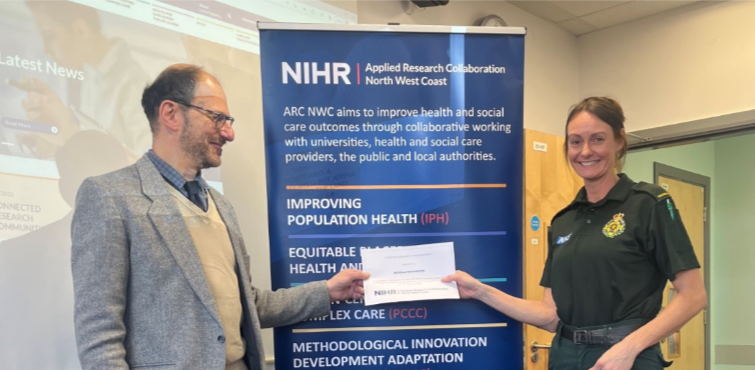Inequalities in receiving paramedic care for end-of-life patients
Michelle Waddington - Paramedic, North West Ambulance Service NHS Trust

Data Science Internship with the Care and Health Informatics (CHI) theme
Background: The North West Ambulance Service (NWAS) covers over 5,500 square miles for a population of over seven million people. It receives 1.3 million 999 calls per year, which equates to 16% of the national 999 calls received. End-of-life patients from higher deprived areas can often be diagnosed at a later stage and therefore rely on the ambulance service more. We want to find out if these areas in the North West require more input from the ambulance service and wider NHS, and if these communities are getting access to the community services they need. Previous research in this area has suggested that there is a need to improve education around end-of-life care choices for patients who could end up dying at hospital, when their preference may have been to receive care at home or in a hospice.
Research aims and objectives: This research will explore the care provided to end-of-life patients by paramedics across the North West region, and identify inequalities faced by these patients, why these inequalities exist, and how they can be tackled.
• What are the demographic characteristics of the end-of-life patient populations?
• What are the inequalities faced by end-of-life patients?
• Are there areas that require more input of services to help these patients, and are these patients able to access the services they require?
Methods: Anonymous data for end-of-life patients will be extracted from 999 calls to NWAS from March 2021 to February 2022. This will be analysed to identify inequalities in service provision for end-of-life patients across the region.
Patient and public involvement: In the process of involving a public and patient panel in the research.
Potential impact: Anticipated outcomes from the project include recommendations for consideration to improve service delivery, training, and approaches to treatment options for end-of-life patients.
Links:
• ARC NWC Internship Showcase Poster
• Newsletter (March 2023)
For more information, contact michelle.waddinton@nwas.nhs.uk